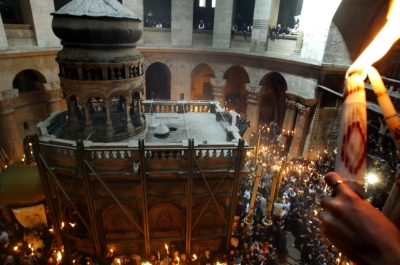4 interesting facts about Easter: Disputed origins, different dates, religious significance of the egg
Different dates

Easter Sunday does not have a fixed date on the Gregorian calendar, but rather in Western Christianity there is a system by which to determine when to celebrate the holy day.
For Western churches, Easter falls on the first Sunday after the first full moon, or on the spring equinox, which is a day with 12 hours of day and 12 hours of night that falls in March.
“On the Gregorian calendar (the one that we use), Easter is the first Sunday after the Paschal full moon, which is the first full moon on or after March 21. Easter thus always falls between March 22 and April 25,” Catholic Answers.
However, this system is not universal to all branches of Christianity. A notable example is the Orthodox Church, which uses a different calendar and calculation system to determine the date of Easter.
John Fotopoulos, associate professor of New Testament in the Department of Religious Studies at Saint Mary’s College, Notre Dame, Indiana, wrote in 2017 that Orthodox Christians use “a complex mathematical formula to calculate the date of Pascha.”
“This formula uses the more inaccurate Julian Calendar (13 days behind the Gregorian Calendar) and a ‘fixed’ Julian Calendar date of March 21 (Gregorian Calendar, April 3) as the vernal equinox,” Fotopoulos explained.
“The Orthodox Church also utilizes a mathematically calculated approximation of the vernal full moon based on a 19-year lunar cycle (the Metonic Cycle). The actual astronomical vernal equinox, however, occurs between 13 to 15 days earlier … than the aforementioned Orthodox ‘fixed’ Julian Calendar’s vernal equinox.”



























